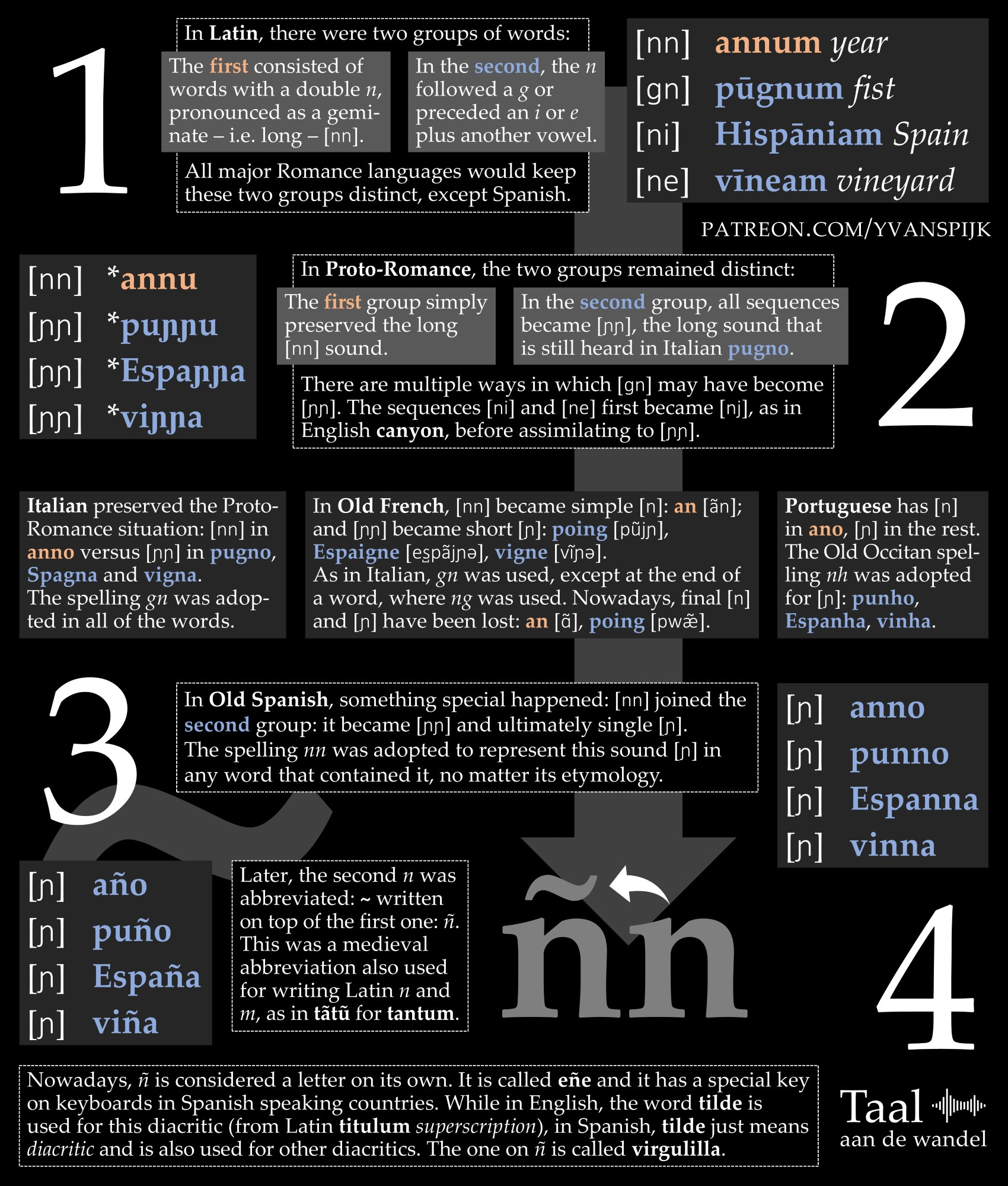The Spanish words 'año' (year) and 'España' (Spain) contain the letter ñ, called eñe.
It comes from a double nn.
One of the n's was abbreviated as a squiggle on top of the other: ñ.
'Año' comes from Latin 'annum' with nn, but 'España' comes from 'Hispāniam'. My graphic explains how it got its ñ:
It comes from a double nn.
One of the n's was abbreviated as a squiggle on top of the other: ñ.
'Año' comes from Latin 'annum' with nn, but 'España' comes from 'Hispāniam'. My graphic explains how it got its ñ:

Comments
https://yvanspijk.tumblr.com/post/766322072308842497/n-less-portuguese
E.g. in the Domesday Book (1086) you can see
The first text box should say 'except Spanish and Catalan'. In Catalan, 'annum' became 'any',
Forgetting about Catalan was a stupid mistake. I'll correct it.